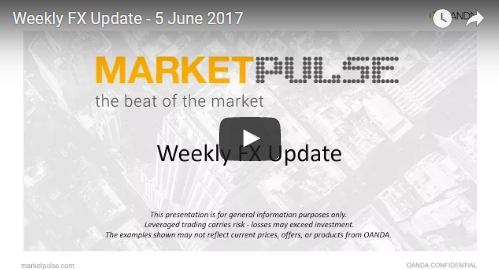It’s not exactly a glittering economic prize for the winner of this week’s election: slower growth, tepid wage gains, a depressed currency and a productivity problem that’s plagued governments for years.
Those challenges are compounding the disruption that Brexit is heaping on the economy, from faster inflation to concern about future trading arrangements. The Bloomberg Brexit Barometer has fallen in the past six weeks and is now in “windy” territory. Here’s what the victor of the June 8 vote will have to contend with in the coming years.
While Prime Minister Theresa May has previously lauded the U.K. for being the fastest-growing Group of Seven economy, that was far from the case at the start of 2017. In fact, you have to go back more than four years to find a weaker performance. The outlook for the rest of the year isn’t much better, and Guy Hands, chief investment officer at Terra Firma Capital Partners, says May isn’t offering answers.
Slumpflation and Uncertainty Push Oil and Gold Higher
Risk Aversion Propels Gold Close to $1300
Content is for general information purposes only. It is not investment advice or a solution to buy or sell securities. Opinions are the authors; not necessarily that of OANDA Business Information & Services, Inc. or any of its affiliates, subsidiaries, officers or directors. If you would like to reproduce or redistribute any of the content found on MarketPulse, an award winning forex, commodities and global indices analysis and news site service produced by OANDA Business Information & Services, Inc., please access the RSS feed or contact us at info@marketpulse.com. Visit https://www.marketpulse.com/ to find out more about the beat of the global markets. © 2023 OANDA Business Information & Services Inc.



